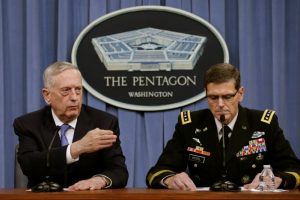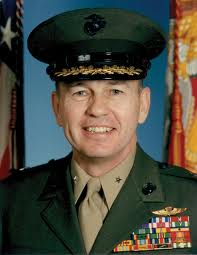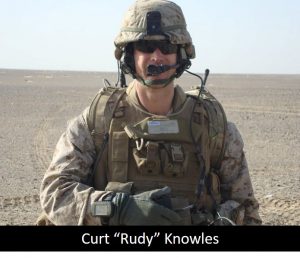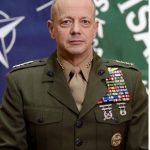by Michael F. McNamara | Apr 11, 2017 | Foreign Affairs, Iraq, ISIL, Russia, Syria, US Navy

U.S. Defense Secretary James Mattis (L) and Army Gen. Joseph Votel, commander of U.S. Central Command, at the Pentagon in Washington, U.S., April 11, 2017. REUTERS/Yuri Gripas
SECDEF James N. Mattis and the Commanding General of CENTCOM, General Joseph Votel, briefed reporters today on details of the Syrian airstrike, more refined bomb damage assessments, the intelligence that led to the airstrike and the message that was intended.
MUST LISTEN.
Podcast: Play in new window | Download
Subscribe: | More
by Michael F. McNamara | Apr 11, 2017 | Foreign Affairs, ISIL, Russia, Syria

Tom Draude
BGen USMC (ret)
Tom Draude joins ALL MARINE RADIO to discuss the current state of Syria after the U.S. Navy strike last week.
Will Russia standby Syria after their use of WMD?
Should the U.S. fear a Russian-Syrian-Iranian alliance from a military perspective?
Podcast: Play in new window | Download
Subscribe: | More
by Michael F. McNamara | Apr 7, 2017 | Syria

Curt Knowles
LtCol USMC (ret)
Curt Knowles, LtCol USMC (ret), and F18 pilot in Iraq and Afghanistan veteran joined the program to discuss factors taken into account when planning a response to Syrian use of nerve gas.
What does the Russian air defense mean to U.S. planners? How did the nature of the target influence the choice of a strike package? Curt helps us understand.
Podcast: Play in new window | Download
Subscribe: | More
by Michael F. McNamara | Apr 7, 2017 | Foreign Affairs, ISIL, Syria

Ben Connable
Maj USMC (ret)
Rand Corporation
Ben Connable, Maj USMC (ret), of the Rand Corporation and an Iraq veteran joined the program to look at the American response to Syrian use of nerve gas.
What does it mean? One and done? A new strategy?
Podcast: Play in new window | Download
Subscribe: | More
by Michael F. McNamara | Apr 7, 2017 | ISIL, Russia, Syria

John R. Allen
General USMC (Ret)
Brookings Institute

John R. Allen
General USMC (ret)
General John Allen, USMC (ret), joined ALL MARINE RADIO to discuss American actions in Syria and what those actions may signal for the future.
Allen discusses the need for a coherent strategy for the two problems in Syria: (1) President Bashar al-Assad’s removal and (2) ISIL which as eluded the United States for the last eight years.
Allen comments on an interesting point relative to the Syrian strike — the “information operations” aspect as Russia, Iran, China and North Korea take in the actions of the Trump Administration.
Podcast: Play in new window | Download
Subscribe: | More






